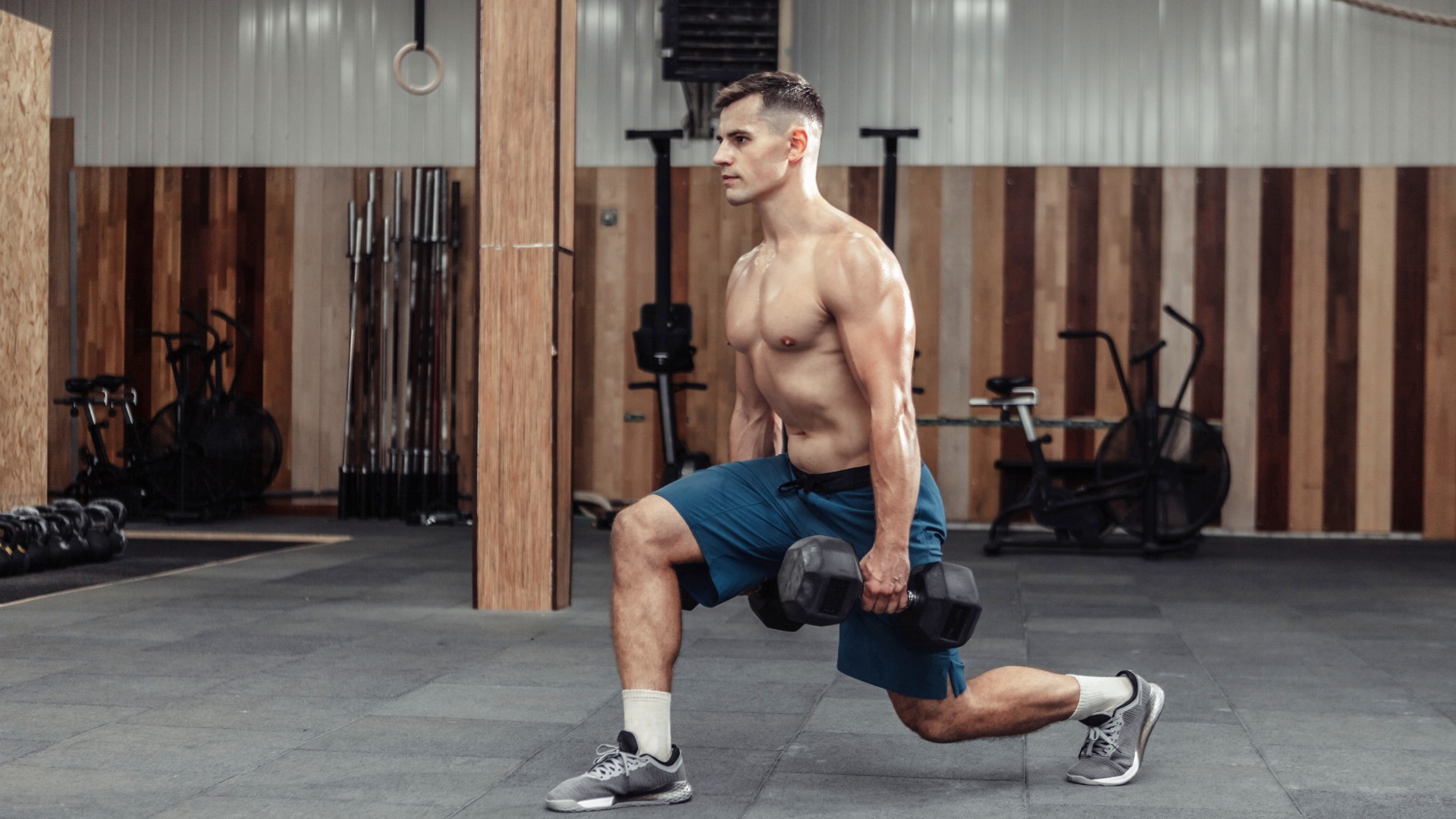
A functional fitness workout means you’ll move your body using multi-joint, multi-muscle compound exercises, targeting, strengthening and building muscle across your entire body.
Using exercises like pulling, lunging or pushing, you can build functional strength, muscle and power, which all sit under that big old functional umbrella of workouts with or without weights.
When the word “functional” is used in the fitness industry, it means exercises serve a purpose for your body in and outside of the gym environment. That means the movement patterns are similar to familiar everyday activities like jumping, climbing or walking. Grab your best adjustable dumbbells and read on.
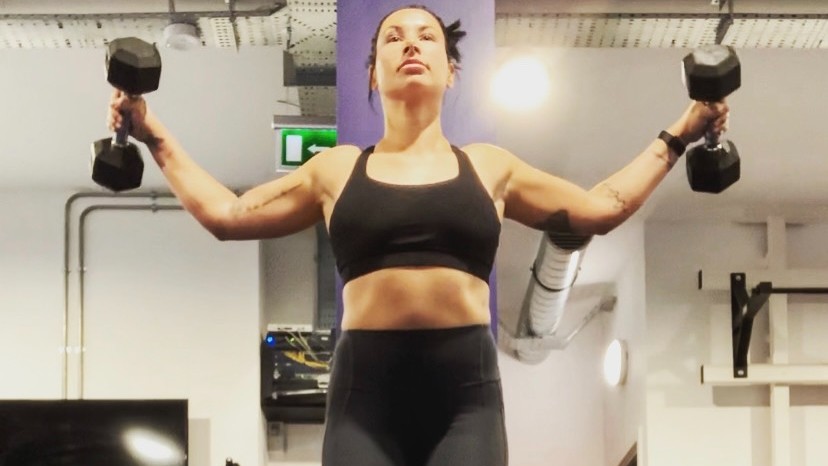
Functional workouts are effective and efficient, making them a top choice for those wanting to increase lean muscle mass, lose weight and strengthen muscles big and small.
This three-move, full-body workout is set “for time,” so try to complete it as quickly as possible. Here it is.
3-move functional fitness workout to try
For time:
15-12-9-6
Get instant access to breaking news, the hottest reviews, great deals and helpful tips.
10 burpees after every round
Complete 15 reps of your first exercise, then move to the next exercise. Once you've completed 15 reps of all three, perform 10 burpees before progressing to the next round of 12 reps per move. Continue until you've completed 6 reps per exercise and finish with 10 burpees.
1. Dumbbell overhead walking lunges
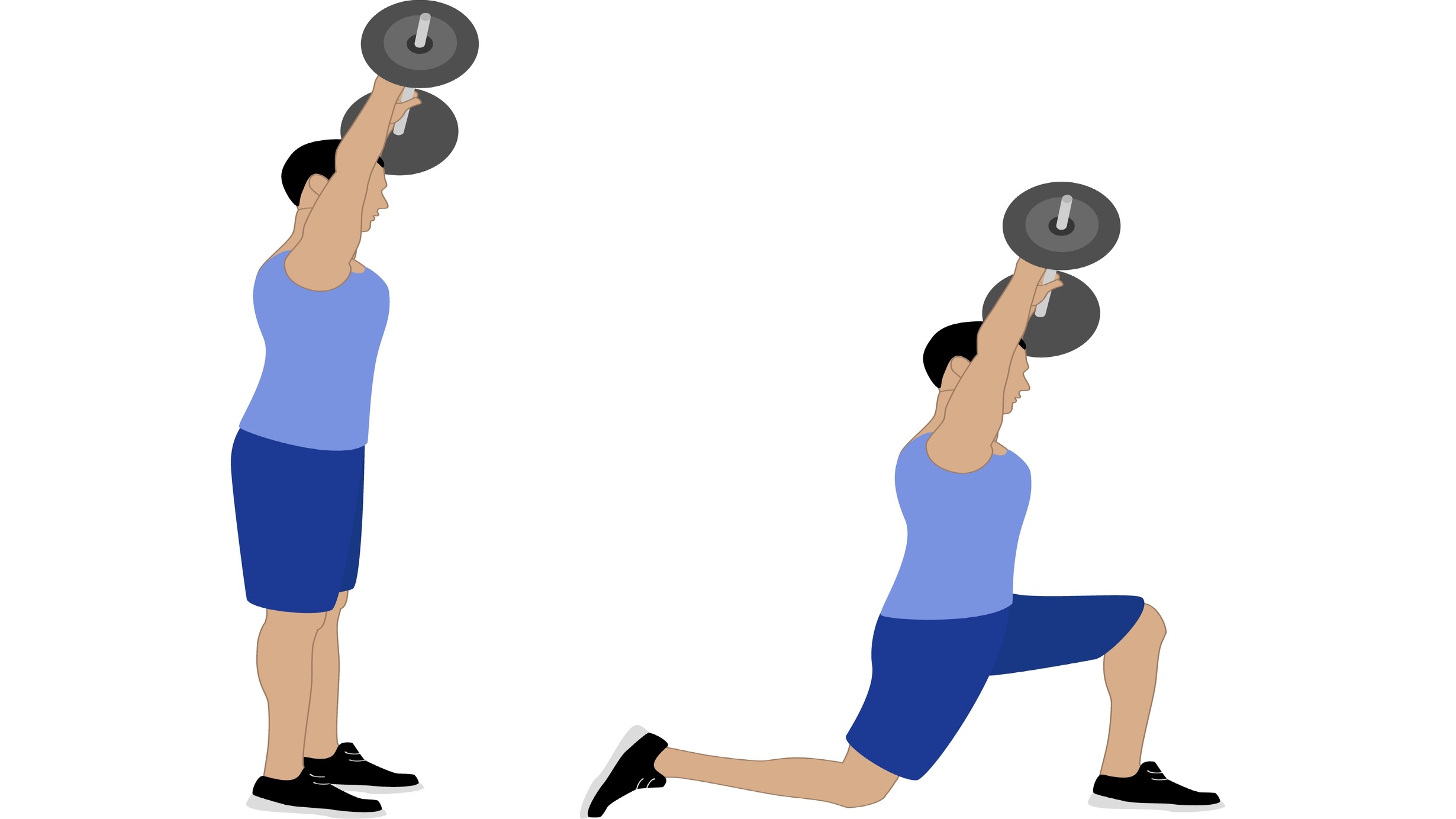
The move tests arm strength, shoulder stability and mobility to keep the weights extended overhead. You’ll also need plenty of back activation and core strength to stay tall through your spine and protect your lower back as you move. If you struggle to lift the weights above your head for the set reps, rack them onto your shoulders as an alternative. Either way, prepare to work your legs hard.
How:
- Start with a dumbbell in both hands and extend both arms overhead with the weights stacked over your shoulders
- Engage your back, core and shoulders, and step your left foot forward into a lunge, bending at the knees as you lower your body down
- Keep your spine neutral as you tap your back knee lightly on the floor
- Press through your front heel to stand and step your right foot forward. Repeat.
2. Dumbbell renegade row to push-up
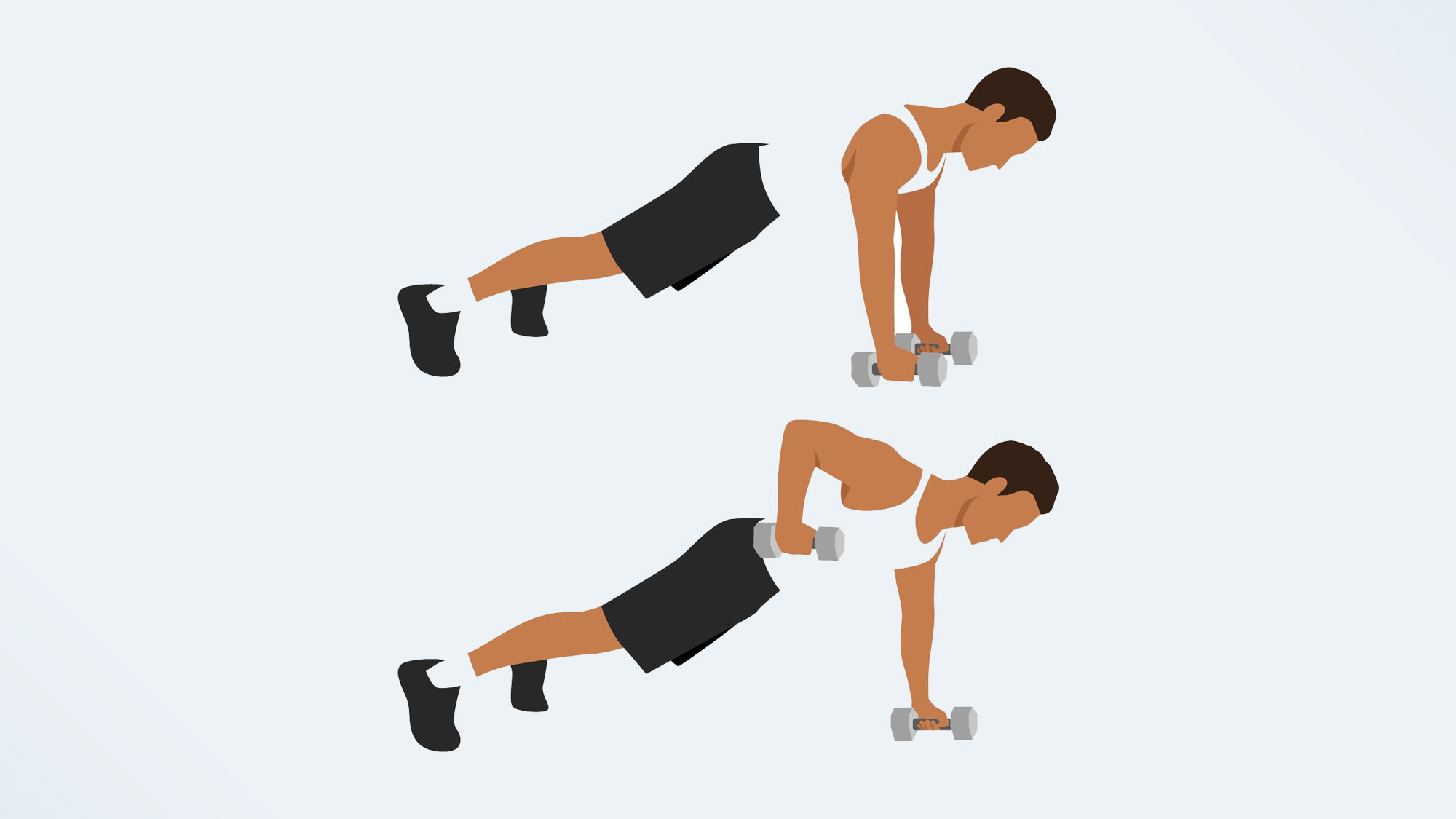
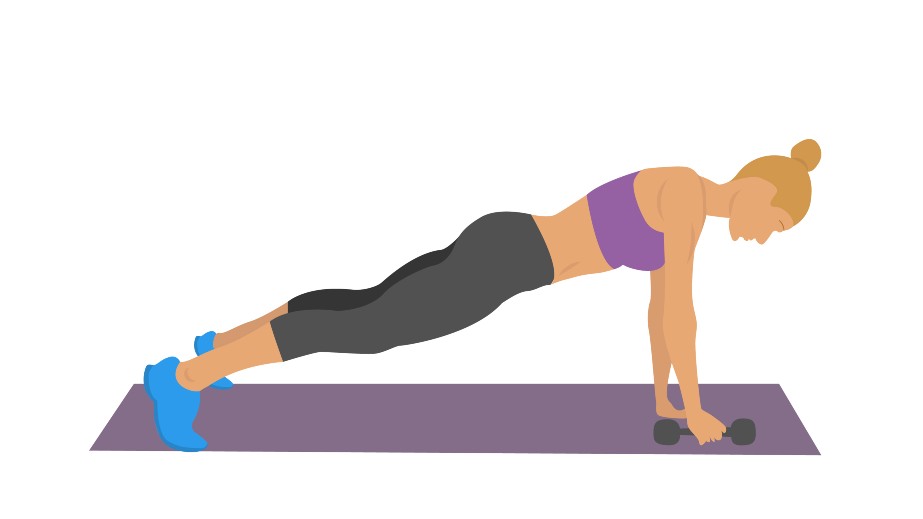
Renegade rows target your back and bicep muscles, engage your core and shoulders and test lower back strength and overall stability. The plank position targets each major muscle group, and push-ups target the triceps, anterior deltoids and pectoral muscles. Together, it’s a powerhouse functional move that hits most muscles.
How:
- Start in a plank position with a dumbbell in each hand, shoulders stacked over wrists
- Engage your core. With control, row one arm back toward your hip until your elbow is slightly higher than your torso, then slowly lower it back down to the ground underneath your shoulder to the starting position
- Repeat with the other arm, then bend both elbows and lower your chest to the floor to perform a push-up
- Contract your stomach and glutes as you push the ground away back to a plank position. That’s one rep.
Find everything you need to know about the benefits of renegade rows and push-ups here.
3. Dumbbell clean and press
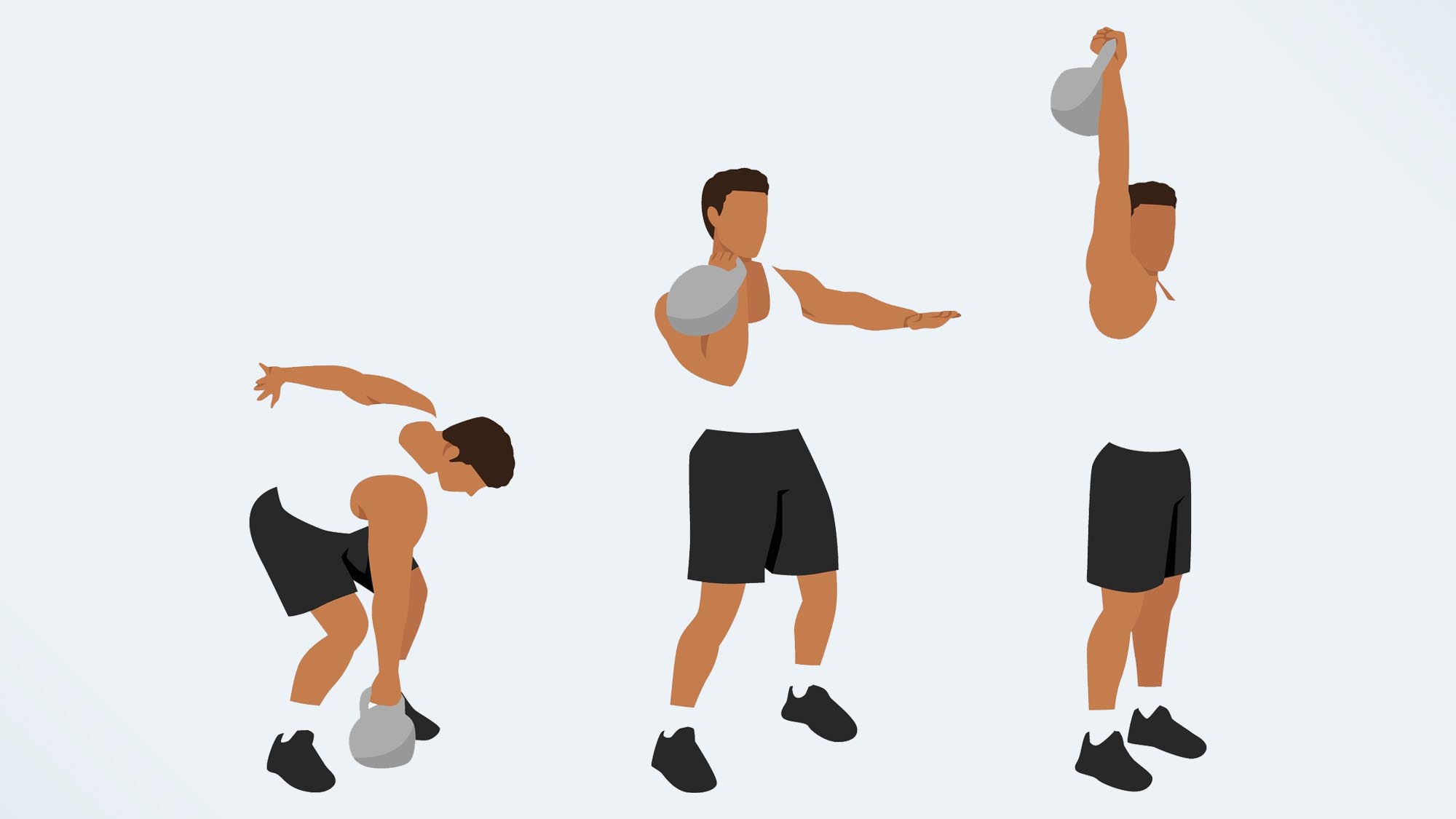
This move hits muscles along the back and front of your body, including your glutes, abs, pectoral muscles, anterior deltoids and triceps, as well as your legs and lower back.
How:
- Start with two dumbbells (or kettlebells) just in front of you and your feet hip-width apart
- Squat down and grab a dumbbell in each hand, then drive through your feet and raise back up to a standing position, keeping your core engaged
- As you stand, swing the dumbbells onto your shoulders with a flat back, then press them above your head
- Lower the weights down to the floor with control and repeat.
Here’s the full lowdown on single-arm clean and presses for an alternative if you don’t want to work with two weights, as well as tips for perfecting your form.
Verdict
The benefits of functional training are endless, and a wealth of research has shown it could improve physical fitness, speed, muscular strength, power, balance and agility, flexibility and even muscular endurance.
Besides, functional resistance exercises can be used as cardio to strengthen your heart and lungs, and regularly adding them into your training programs could translate to your day-to-day routine and ability to move around or perform better overall.
If you don’t have dumbbells, consider trying kettlebells, resistance bands or just your body weight — a training form called calisthenics. So, whether you prefer strength programs or testing your cardio fitness, functional exercises should be in there somewhere.
More from Tom's Guide
- I'm a personal trainer, here are the 7 best ways to fix butt winks during squats
- Forget planks, this 6-minute bodyweight workout targets your lower abs.

Sam Hopes is a level 3 qualified trainer, a level 2 Reiki practitioner and fitness editor at Tom's Guide. She is also currently undertaking her Yoga For Athletes training course.
Sam has written for various fitness brands and websites over the years and has experience across brands at Future, such as Live Science, Fit&Well, Coach, and T3.
Having coached at fitness studios like F45 and Virgin Active and personal trained, Sam now primarily teaches outdoor bootcamps, bodyweight, calisthenics and kettlebells.
She also coaches mobility and flexibility classes several times a week and believes that true strength comes from a holistic approach to training your body.
Sam has completed two mixed doubles Hyrox competitions in London and the Netherlands and finished her first doubles attempt in 1:11.
 Club Benefits
Club Benefits





